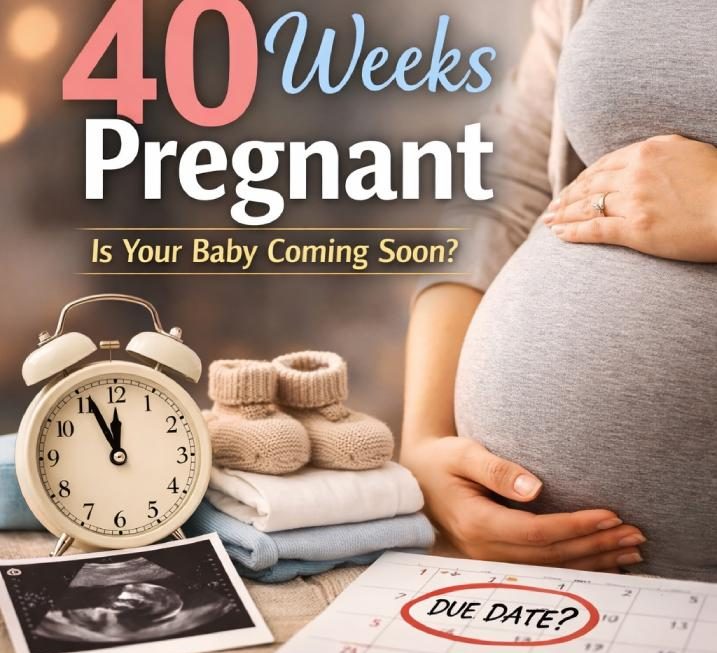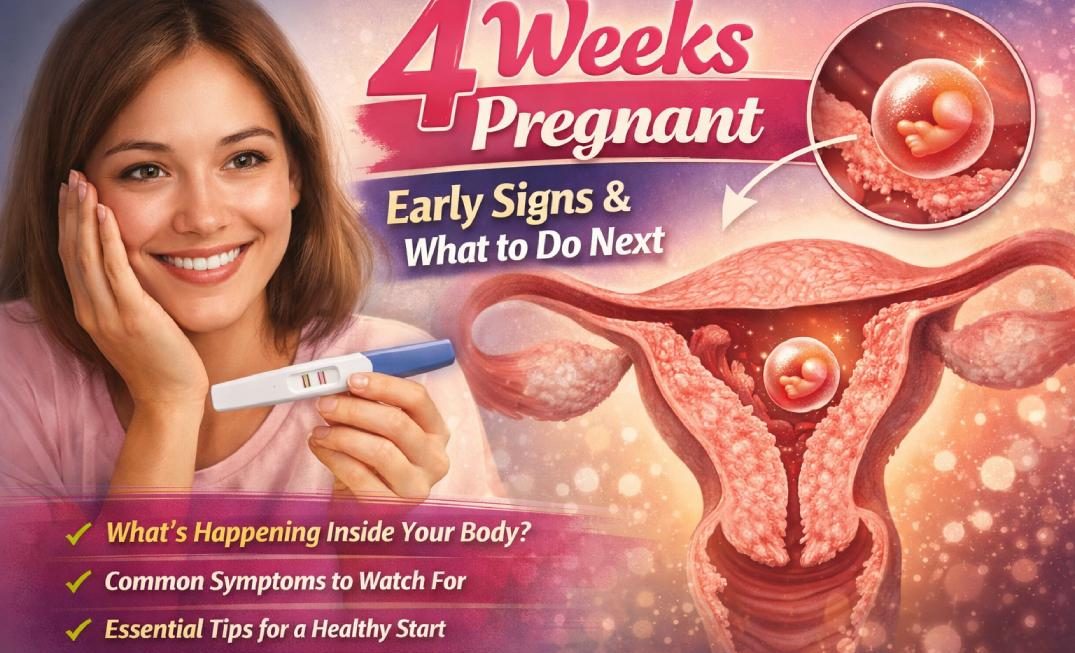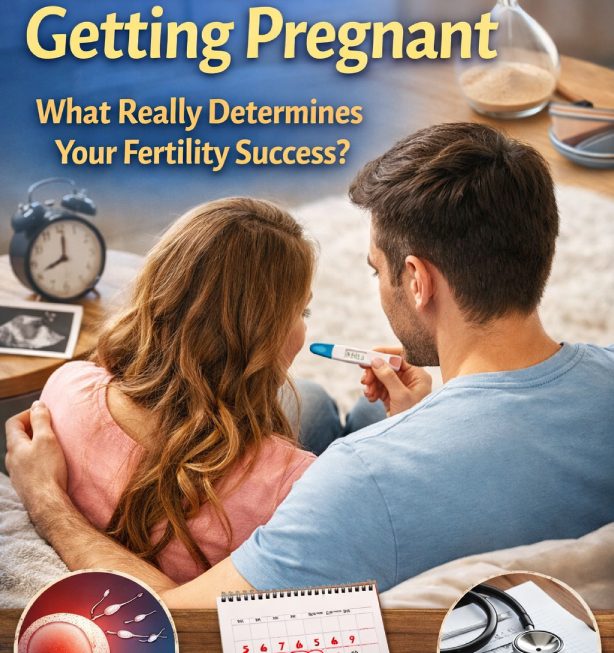For many couples, the pregnancy journey can be both exciting and filled with anticipation. While some might conceive quickly, others may find the process takes longer than expected, leading to frustration or worry. The timeline to get pregnant varies widely and depends on several factors, including age, overall health, timing, and fertility.
Understanding the average time it takes to conceive and what factors play into it can help ease anxieties and set realistic expectations. In this article, we’ll explore everything you need to know about how long it takes to get pregnant and the steps you can take to optimize your chances of conceiving.
How Long Does It Typically Take To Get Pregnant?
For couples trying to conceive, patience is key. On average, most healthy couples (where the woman is under 35) will conceive within six months to a year of trying. According to research, around 80% of couples will get pregnant after six months, and 85% will conceive within a year. However, if you’re trying to get pregnant and it hasn’t happened after a year of consistent attempts, it might be time to speak with a healthcare professional to rule out any fertility issues.
If you’re older than 35, the timeline may look different. Fertility naturally declines with age, so women over 35 who haven’t conceived within six months of trying should consult a doctor to explore options for enhancing fertility.
Factors That Impact How Long It Takes To Get Pregnant
Several factors can influence how long it takes to conceive. Here are some of the most critical ones to consider:
Age and Fertility Decline
Age is one of the most significant factors affecting fertility. Women are born with all the eggs they’ll ever have, and as they age, the quantity and quality of those eggs decline. By the age of 30, fertility begins to decrease, and by age 35, this decline becomes more rapid. After age 40, it becomes increasingly difficult to conceive naturally, with a significant drop in the success rate of conception.
For men, while age also impacts fertility, the decline is more gradual. Sperm quality and motility decrease with age, especially after 40, but men generally remain fertile much longer than women.
Ovulation Timing and Menstrual Cycles
Timing is everything when trying to conceive. Knowing when you’re ovulating — when an egg is released from the ovary — is crucial. The average menstrual cycle is about 28 days, but this can vary. Ovulation typically occurs around day 14 of your cycle, but it can happen anywhere between days 11 and 21. The fertile window, the days leading up to and including ovulation, is the best time to have intercourse for conception. Using ovulation predictor kits (OPKs), monitoring basal body temperature (BBT), or tracking changes in cervical mucus can help pinpoint your fertile days.
Lifestyle Factors That Influence Fertility
Your lifestyle choices can play a significant role in how long it takes to get pregnant. Smoking, excessive alcohol consumption, and high caffeine intake can all negatively impact fertility for both men and women. Maintaining a healthy weight, eating a nutrient-rich diet, and managing stress can improve your chances of conceiving.
Additionally, frequent exposure to environmental toxins — such as pesticides, heavy metals, and chemicals — can harm fertility. Being mindful of these exposures can improve overall reproductive health.
Medical Conditions Affecting Fertility
Certain medical conditions can make it harder to get pregnant. Polycystic ovary syndrome (PCOS), endometriosis, and blocked fallopian tubes are common conditions that can delay conception. For men, low sperm count, poor sperm motility, and erectile dysfunction are factors that can impede fertility. If you suspect you or your partner have any of these issues, consult a healthcare provider for advice and potential treatments.
How to Improve Your Chances of Getting Pregnant Faster
While some factors affecting fertility are beyond your control, there are steps you can take to enhance your chances of getting pregnant more quickly.
Optimize Your Timing
Tracking ovulation and understanding your menstrual cycle can significantly boost your odds of getting pregnant. Using apps, ovulation predictor kits, or even fertility monitors can help you time intercourse during your fertile window, giving you the best chance of conceiving each month.
Focus on Nutrition and Health
A balanced diet rich in vitamins and minerals, especially folic acid, zinc, and antioxidants, can promote reproductive health. Women trying to conceive should also consider taking prenatal vitamins to prepare their bodies for pregnancy. Regular exercise is essential for maintaining a healthy weight, but avoid intense workouts that may disrupt ovulation.
Manage Stress
Stress can interfere with hormonal balance, impacting both male and female fertility. Incorporating stress-reducing practices like yoga, meditation, or even short daily walks can help lower cortisol levels and improve your chances of conception.
Address Medical Concerns
If you’ve been trying to get pregnant for a while with no success, it’s essential to see a healthcare provider for a fertility assessment. Treating underlying medical issues like thyroid disorders or hormonal imbalances can help restore fertility. For men, a semen analysis can help identify any sperm-related issues.
How Long Should You Try to Get Pregnant Before Seeking Help?
If you’re under 35 and have been trying to conceive for a year without success, it’s recommended that you seek medical advice. Women over 35 should see a healthcare provider after six months of trying. Those over 40 may benefit from consulting a fertility specialist even sooner, as time is a more critical factor in older age.
A fertility specialist can run tests to determine if there are any issues affecting your ability to conceive. These tests might include blood work to check hormone levels, ultrasound exams to evaluate reproductive organs, and semen analysis for male fertility. Based on the results, your doctor might recommend treatments like fertility medications, intrauterine insemination (IUI), or in vitro fertilization (IVF).
Common Misconceptions About Getting Pregnant
There are plenty of myths and misconceptions surrounding conception. Here are a few common ones debunked:
“You can get pregnant at any time of the month.”
This is false. You’re most fertile during your ovulation window, typically in the middle of your cycle. While it’s possible to get pregnant outside this window, the odds are much lower.
“It’s just as easy to get pregnant at 40 as it is at 25.”
Unfortunately, fertility declines with age, and it becomes harder to conceive naturally after 35. While some women can still conceive naturally in their 40s, the chances are lower, and fertility treatments may be necessary.
“Having sex every day increases your chances of getting pregnant.”
While regular sex during your fertile window is important, having sex every day might not necessarily improve your chances. Frequent ejaculation can reduce sperm count. Aim to have intercourse every 1-2 days during the fertile window for the best odds.
FAQs About How Long It Takes to Get Pregnant
1. How long does it take to get pregnant on average?
Most couples conceive within six months to a year of trying, though this can vary based on age, health, and other factors.
2. What can affect how long it takes to get pregnant?
Age, ovulation timing, lifestyle choices, and underlying health conditions can all impact how long it takes to conceive.
3. How do I know when I’m ovulating?
You can track ovulation using methods like ovulation predictor kits, basal body temperature monitoring, and tracking cervical mucus changes.
4. When should I seek help if I’m not getting pregnant?
If you’re under 35 and haven’t conceived after a year, or over 35 and haven’t conceived after six months, it’s time to consult a healthcare provider.
5. Can lifestyle changes improve fertility?
Yes, healthy lifestyle changes — such as quitting smoking, limiting alcohol, maintaining a balanced diet, and reducing stress — can significantly improve your chances of getting pregnant.

Understanding how long it takes to get pregnant and the factors that influence conception can help set realistic expectations and alleviate stress during the process. While most couples conceive within a year, it’s important to focus on your health, track ovulation, and seek medical advice if needed. Whether you’re just starting your journey or have been trying for a while, staying informed and proactive can make all the difference.


